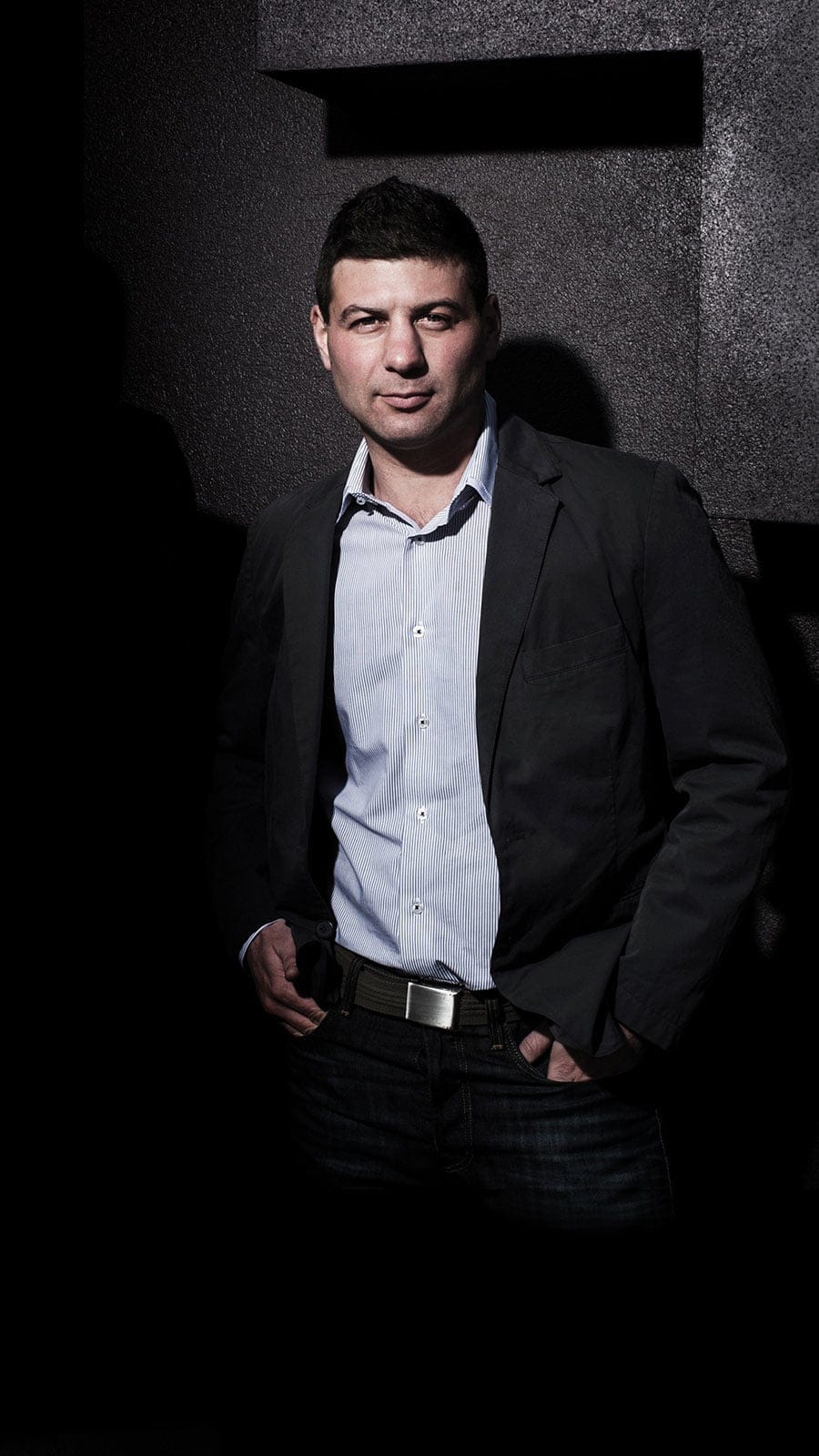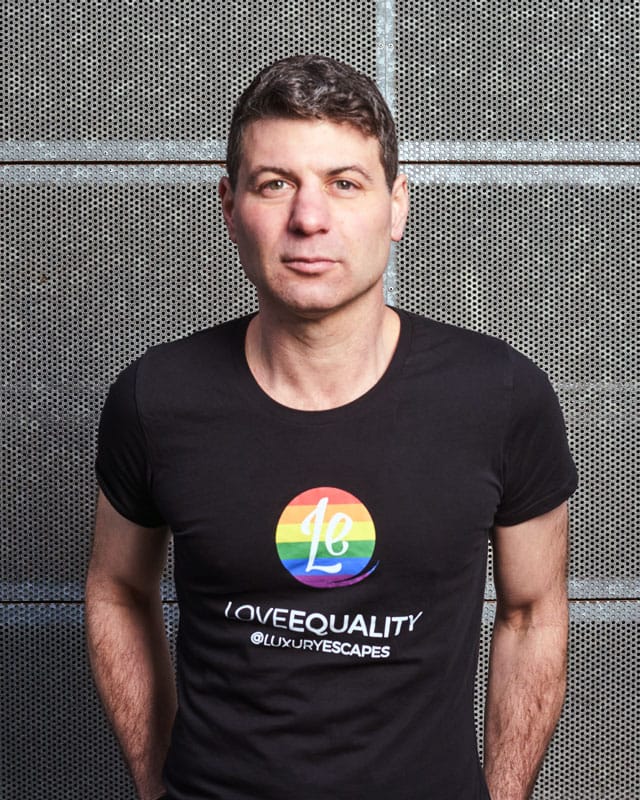
Monash University Faculty of Law proved a useful training ground for Adam Schwab’s business instincts. The undergraduate supported himself through his law and commerce degree by tapping into the market for law notes from high-achieving students. Replicating a model he’d pioneered in secondary school for VCE assignments, he managed to convince Legibook (the official law school bookshop) to sell his DigiLaw CD-ROMS, “which basically convinced everyone that they were a professional product”.
When the dean of the law school stepped in to close down the operation, Schwab quickly pivoted to wholesaling them through the University mobile phone store.
“They turned out to be pretty popular. At one point I think around 10 per cent of law students were probably using them,” Schwab says.
Schwab, now 40, stopped his hustle when he started working in mergers and acquisitions at corporate law firm Freehills (now Herbert Smith Freehills), but it’s been emblematic of his subsequent career.
After a few years spent in the legal field, Schwab has gone on to establish a series of successful ecommerce companies with school friend Jeremy Same. Their main business is online travel retailer Luxury Escapes, which in 2017 was named Australia’s fastest-growing company by the Australian Financial Review, and has operations on four continents. Schwab and Same’s other startup, MyTable, eventually became part of Menulog, before it was sold to UK-based Just Eat. Schwab is also an investor and board member in the fast-growing online art marketplace Bluethumb, and Australia’s largest beauty bookings website, Bookwell.
A startup king with a keen sense for tech-enabled new marketplaces, Schwab’s thirst for entrepreneurialism got its first significant runs on the board with Living Corporate. The seeds for the upmarket short-stay apartments were planted in 2004, when he and Same rented, then furnished and sublet inner-city apartments for a “well-off backpacker crowd” before flipping the model a few years later to a more lucrative corporate model.
The move into ecommerce was funded during the same time by the booming Melbourne property market. Buying then selling six apartments in the space of a few years reaped a million-dollar windfall, and faced with buying a house or “rolling the dice”, the then 29-year-old Schwab took the latter option.
“This was before entrepreneurialism was cool,” Schwab says. “It was still Christopher Skase and Alan Bond; it was pre-Facebook and Snapchat, pre-Atlassian. The Rich List back then was a very different thing.”
Selling a dream
In 2010, he and Same launched DEALS.com.au, which he describes as “one of many Groupon clones” based on selling restaurant offers, day-spa vouchers and other experiential products on a flash sale model.
The realisation that travel-related offers were the most lucrative took them in the spin-off direction of Luxury Escapes, which tapped into the booming luxury travel market by specialising in discounted luxury trips to holiday hotspots such as the Maldives, Bali and Dubai, in partnership with high-end hotels. Their mini-unicorn services more than 500,000 customers each year, and was on track to turn over about half a billion dollars in the 2019-20 financial year before the onset of COVID-19.

Arrival of COVID-19
“COVID has been a real test of leadership across both the political and business sectors, and it has given Luxury Travel a real opportunity to reshape how we want to be as a business over the next decade.”
Schwab is also a regular contributor to online news website Crikey, and is the author of the book Pigs at the Trough: Lessons from Australia’s Decade of Corporate Greed.
He’s clearly no stranger to interrogating the machinations of the business world, yet he’s happy to ascribe much of his huge success to luck.
“Yes, you have to work hard, but we were exposed to ecommerce at the right time, exposed to the travel industry at the right time. And while we’ve made plenty of mistakes, they never turned into full failures.”
Timing isn’t currently favouring the travel industry thanks to the arrival of COVID-19, and Luxury Escapes was hit in the early days of the pandemic. “It was an existential crisis. At first we thought that if we don’t cut costs the business may not survive, so everyone went onto a full emergency footing for the first couple of weeks.”
Reality was far better than the early expectations, with Schwab reporting that Luxury Escapes had kept virtually all team members. The Australian Government’s JobKeeper had helped, he noted, while board members dropped their remuneration to zero, all senior executives took a pay cut, and staff reduced their work hours. “It was an incredibly unifying process, and has allowed the business to focus on growth and accelerating out of the turn,” he says.
Alumni mentoring program
You can choose to be a mentor, a mentee or both without the demands of an ongoing mentoring relationship or the barrier of geography. You'll be able to step in and out of the program to allow for your other commitments. Interested?





